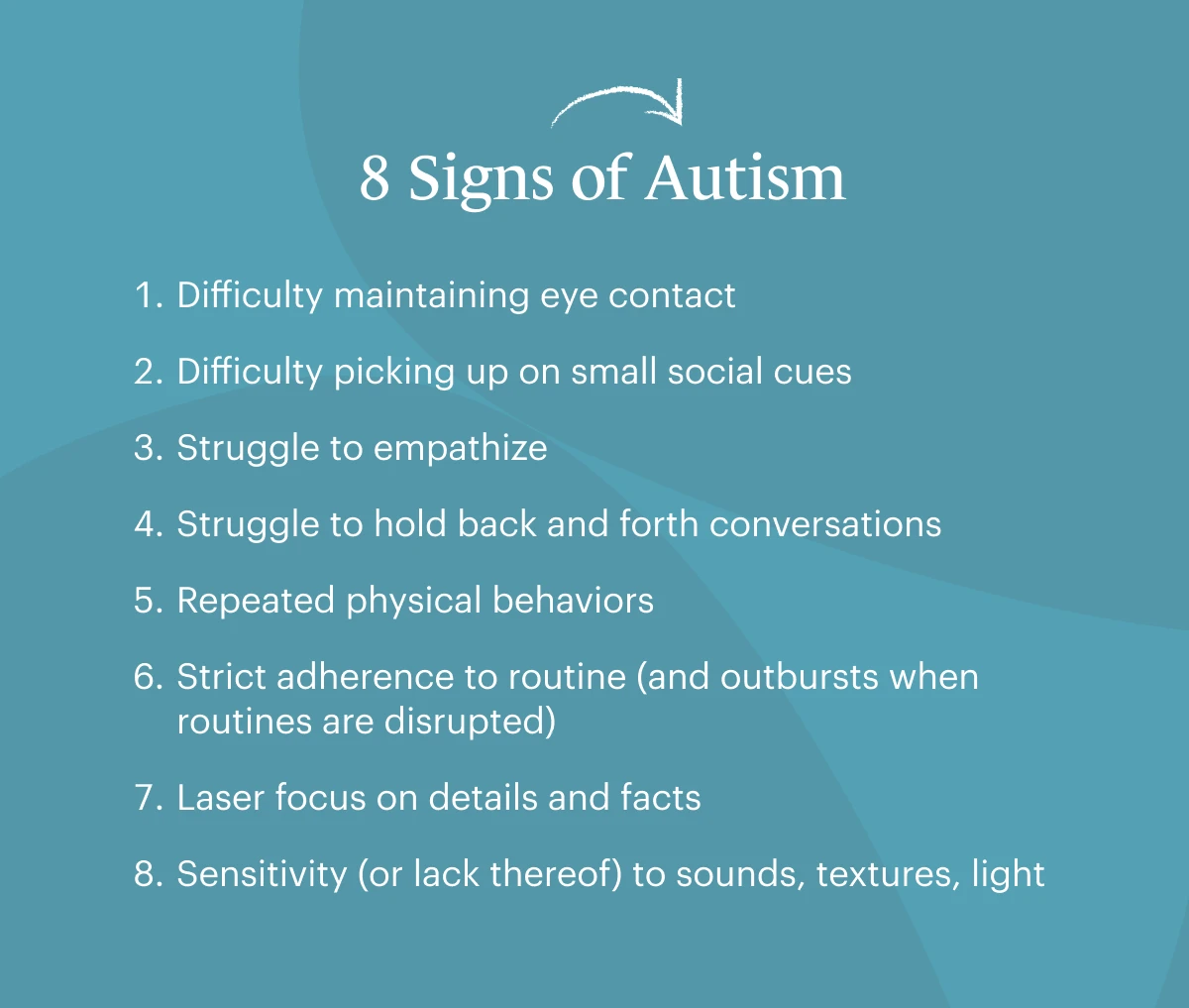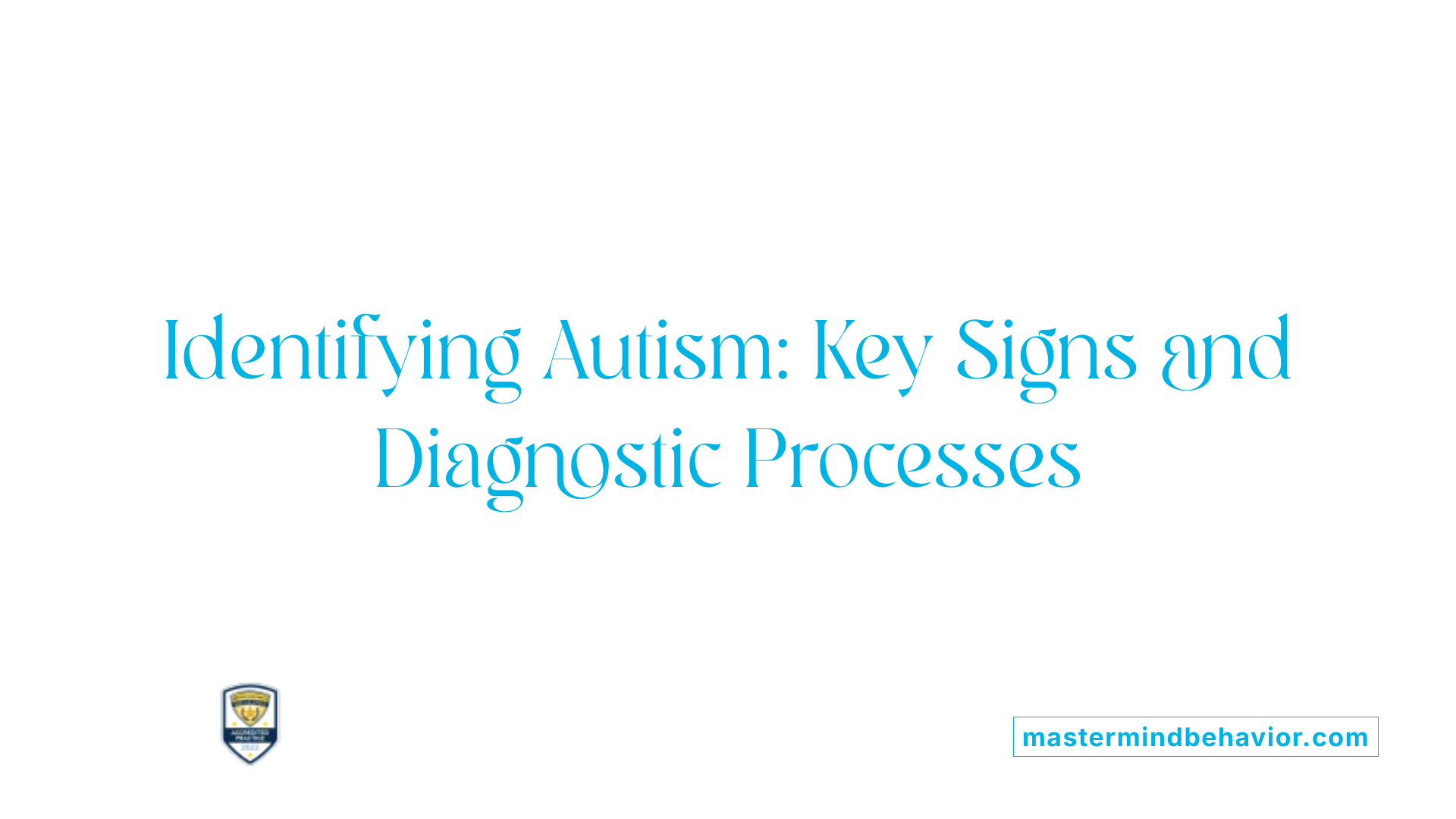How to build real connections with help from an Autism Therapist's insights
How to build real connections with help from an Autism Therapist's insights
Blog Article
Key Symptoms And Signs to Recognize in People With Behavioral Autism
When you come across somebody with behavior autism, identifying vital signs and symptoms is important. Furthermore, sensory sensitivities can lead to overwhelming experiences.
Challenges in Social Communications
When you engage with someone on the autism spectrum, you might notice they battle with social signs and interaction. These obstacles can make social interactions feel frustrating for them. You may see them preventing eye contact or standing too close or too far away during discussions, which can develop misconceptions. They could not notice body language or faces, making it harder for them to determine how others are feeling.
In addition, you may discover that they like routines and familiar setups, which can restrict their willingness to engage in new social situations. They may chat regarding their passions in excellent detail without observing if you're interested when they do involve. This can result in discriminatory conversations that leave you feeling detached. Recognizing these difficulties can help you come close to communications with empathy and patience, fostering an extra comfy environment for both of you.
Difficulty With Verbal and Non-Verbal Interaction

Non-verbal communication can be much more difficult. You may see a lack of eye contact or minimal usage of motions, which can make communications feel awkward. Faces might not constantly line up with the discussion, bring about complication concerning their sensations. Acknowledging these signs is crucial, as it assists you much better support and engage with individuals on the autism range. By comprehending their interaction difficulties, you can foster more purposeful connections and give an extra encouraging environment.
Repetitive Actions and Regimens
Interaction difficulties commonly accompany various other signs of autism, such as repetitive behaviors and a strong preference for regimens. You could discover that individuals with autism often take part in particular, repeated activities, like hand-flapping, rocking, or duplicating phrases. These actions can provide comfort and a feeling of control in a frequently overwhelming world.
Regimens are similarly crucial; many people grow when they comply with an organized routine. You might find that modifications to these regimens can cause considerable distress. For example, if they have a daily routine of eating morning meal at a certain time or complying with a particular path to college, any disturbance can trigger anxiousness.
Recognizing these patterns helps you comprehend their behavior and supply assistance. By fitting their demand for regular and permitting repetitive activities, you can produce an extra comfy environment that reduces their obstacles.
Sensory Level Of Sensitivities

Typical Sensory Triggers
Sensory sensitivities can significantly affect daily life for individuals with autism, as specific stimulations often activate overwhelming responses. Typical sensory triggers consist of loud noises, bright lights, and strong smells. Understanding these triggers can help you manage your atmosphere much better.
Behavioral Reactions Discussed
Recognizing your behavior feedbacks to sensory sensitivities is vital, as they often expose how you communicate with the globe. You could discover that specific noises, lights, or textures bewilder you, causing anxiousness or discomfort. When confronted with these stimulations, you may take out, cover your ears, or perhaps react aggressively. These responses aren't simply traits; they're your means of handling overstimulation. You may also find on your own seeking certain sensory experiences, like deep stress or peaceful environments, to assist ground on your own. Identifying these patterns helps you recognize your requirements better and can direct how you communicate them to others. By recognizing your sensory sensitivities, you can function towards creating a setting that really feels much more comfortable and workable for you.
Coping Methods Review
Identifying your sensory sensitivities is just the initial step; currently it's time to check out coping approaches that can assist you manage those experiences successfully. Begin by creating a sensory toolkit tailored to your needs. This can include noise-canceling earphones, fidget toys, or relaxing scents. Developing an organized routine can also offer predictability, minimizing anxiousness around sensory overload. When you feel overwhelmed, take breaks in a peaceful space to collect yourself. Practicing mindfulness methods such as deep breathing can help ground you in the moment. Additionally, communicate your requirements with those around you; having supportive good friends and household can make a big difference. Remember, finding what functions best for you may take time, so be open and patient to trying new techniques.
Limited Interests and Focus
While several individuals develop a wide variety of interests, those look at here now with autism frequently demonstrate limited rate of interests and an intense concentrate on details topics. You may observe that someone with autism can spend hours diving right into their preferred subject, whether it's a certain kind of train, a certain film, or a clinical idea. This extreme focus isn't just a leisure activity; it can become a central component of their identity and social communications.
You may discover that conversations focus on these interests, and they may struggle to take part in wider subjects. For them, these focused interests give convenience and a sense of proficiency. While it is essential to urge exploration of brand-new subjects, appreciating their passions is equally crucial. By understanding and recognizing these limited passions, you can foster an encouraging environment where they feel valued and comprehended, permitting even more significant links and communications.
Psychological Regulation Problems
Individuals with autism often encounter obstacles in emotional law, which can be influenced by their extreme concentrate on certain passions. You might observe that when an individual is deeply engaged in a preferred activity, they can experience strong feelings, whether excitement or disappointment. This strength often makes it tough for them to shift equipments or manage their feelings when things don't go as prepared.

Variability in Developmental Turning Points
When it comes to developmental milestones, you'll notice that individuals with autism typically reveal a wide array of irregularity. You could see a youngster excel in language skills but battle with social interactions.
It's important to acknowledge that each individual's journey is unique. Observing these patterns can help you understand their find more information toughness and needs better.
Often Asked Inquiries
Just How Is Autism Diagnosed in Kid and Grownups?
To identify autism in grownups and children, experts assess actions, communication abilities, and social communications. If a specific fulfills the requirements for autism spectrum problem., they typically make use of standard tests, interviews, and monitorings to establish.
Are There Different Sorts Of Autism Range Disorders?
Yes, there are various kinds of autism range problems, including Asperger's disorder and prevalent developing disorder-not otherwise specified. Each type differs in seriousness and attributes, so comprehending these distinctions can help you far look at more info better support individuals with autism.
What Treatments Work for Individuals With Autism?
When taking into consideration reliable therapies for individuals with autism, you'll discover alternatives like Applied Actions Analysis, speech therapy, and work-related therapy. Each method can aid enhance communication, social skills, and daily operating customized to individual demands.
Can People With Autism Lead Independent Lives?
Yes, people with autism can lead independent lives. With the appropriate assistance, abilities training, and resources, you can assist them establish self-sufficiency, take care of everyday tasks, and prosper in different settings, promoting their self-reliance.
How Can Families Assistance Loved Ones With Autism?
You can sustain your liked ones with autism by producing a structured setting, motivating their interests, exercising persistence, cultivating interaction, and advertising social abilities. Commemorate their accomplishments, despite just how little, and build a helpful area.
Although numerous individuals on the autism range can make use of and recognize language, they usually encounter substantial challenges with both non-verbal and verbal interaction. Acknowledging these indicators is crucial, as it aids you much better support and engage with people on the autism spectrum. You could discover that people with autism commonly engage in details, repetitive actions, like hand-flapping, rocking, or repeating phrases.Sensory sensitivities can substantially impact everyday life for individuals with autism, as specific stimulations often set off overwhelming responses.When it comes to developmental landmarks, you'll notice that people with autism frequently show a vast variety of irregularity.
Report this page